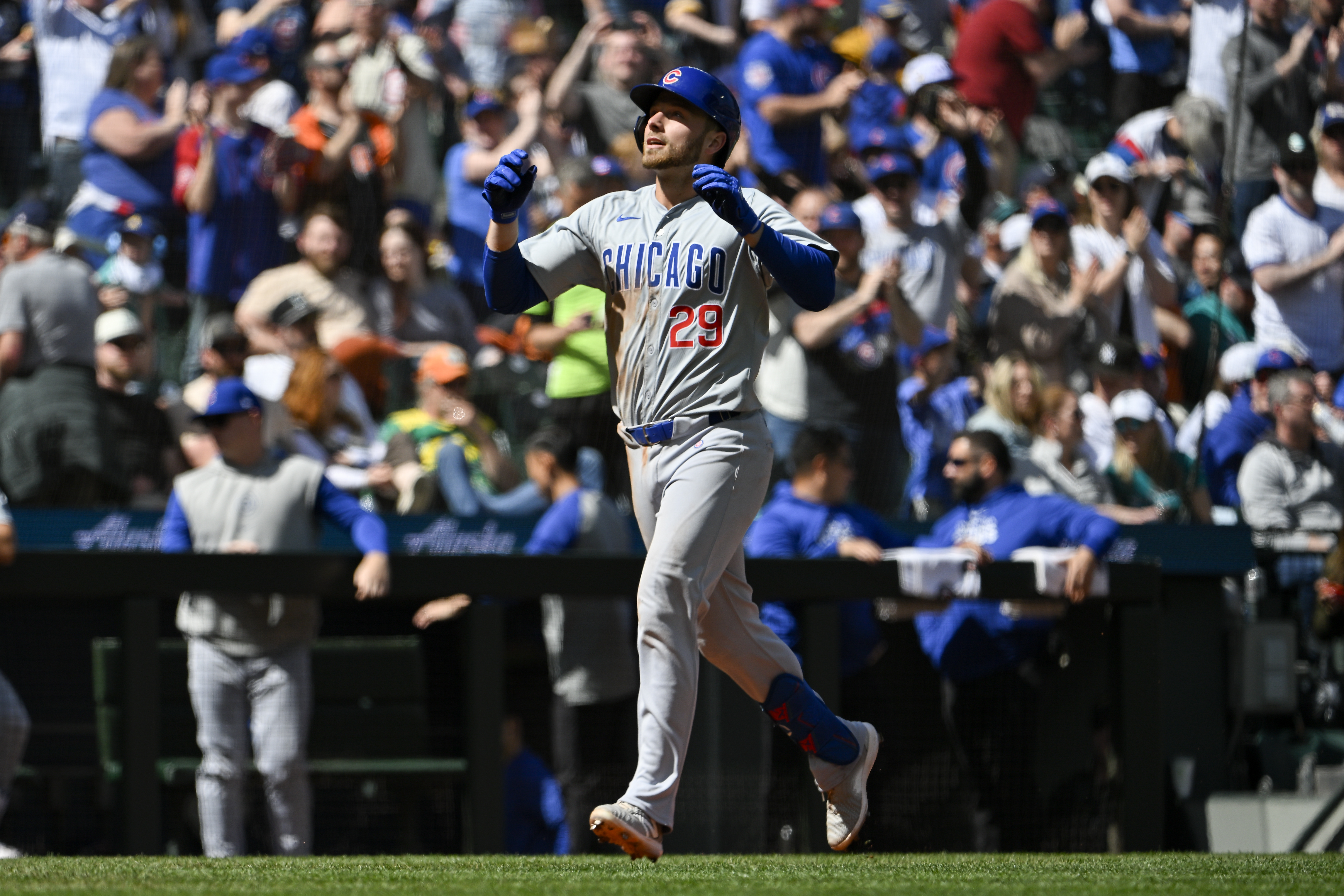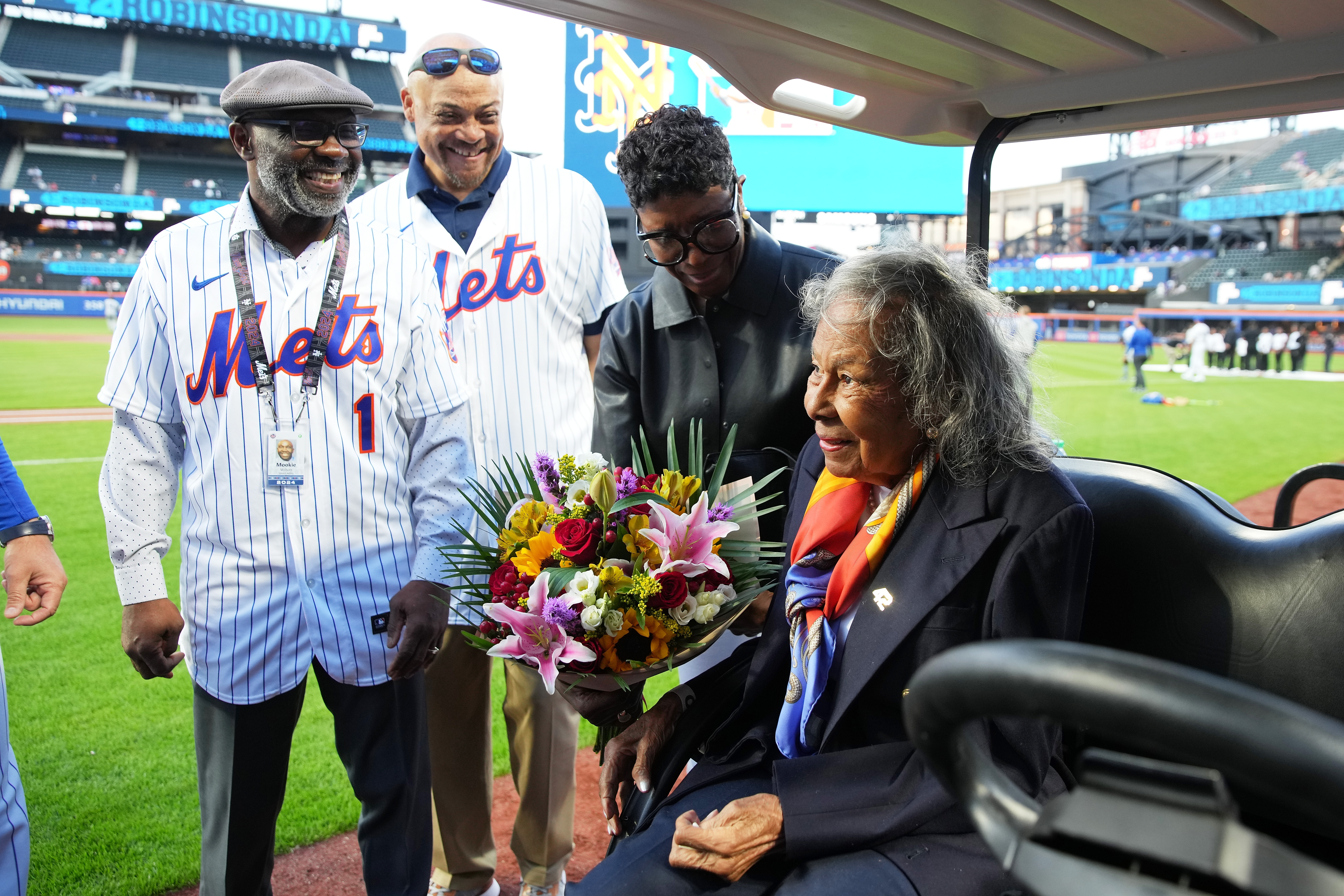
Wednesday, Sept. 7, 2011
Posted: 3:09 p.m.
By Chuck Garfien
CSNChicago.com
It was the most devastating thing that your mind could ever imagine. -- Hawk Harrelson
They were saying 10-12 planes were unaccounted for, and were staying at Grand Central Station. We said, Lets get out of here. -- Paul Konerko
It was the first time I actually thought we were going to die.-- Mark Buehrle
At 2:00 a.m. of the morning of Sept. 11, 2001, the Chicago White Sox arrived at the Grand Hyatt Hotel in the heart of Manhattan. They were scheduled to start a three-game series that night with the New York Yankees.
But later that morning, the world as we knew it would change forever.
Kip Wells called me and said, Turn on the TV, the World Trade Center is getting bombed, Mark Buehrle said. I went to the TV to see what was going on, turned it on, and there it was.
A few doors down, a similar phone call went to Ed Cassin, the White Sox traveling secretary.
MLB
I picked up the phone, and it was my wife, Cassin recalled. She said, Are you okay? Im like, Why wouldnt I be okay? Whats going on? She told me to turn on the television. I asked, What channel? She said, It doesnt matter.
Yankees catcher Jorge Posada was in a New York City hospital that Sept. 11th morning, at the bedside of his young son who had just had surgery.
He wanted to watch a videotape, and while Im rewinding it, I see the first plane going into the building, Posada said. I didnt think anything. I just thought it was something made up, some kind of show. But then I see the second plane go into the second building, and then Im like, Hold on a second, somethings going on here. So I go outside to tell the nurse just in case people were coming in, and what to do about all the lines if they needed extra tables or extra beds. Posada paused. But nobody came in.
Back at the White Sox hotel, which was about four miles from the World Trade Center, Paul Konerko said he woke up to panic on the street, alarms at the hotel. He and teammates Sean Lowe, Keith Foulke, and Bob Howry gathered in the lobby. With glazed looks on their faces, they went outside and noticed the exact same expression on everyone else.
Anybody whos been to New York, normally people are walking the streets doing their own thing, but there were really millions of people all thinking about the same thing at one time, it was a very odd feeling, explained Konerko.
From one captain to another, Yankees shortstop Derek Jeter shared Konerkos point of view.
It was surreal to see Manhattan with no cars, no traffic, just people walking in the middle of the street not saying too much, almost something that was out of a movie set, you know? Jeter said. Anyone whos spent time in Manhattan knows how busy it is, all the noise. But it was a ghost town.
Hearing that several planes were unaccounted for, and realizing that they were very close to the Empire State Building, a possible target, Konerko and his three teammates concluded that the safest place to be was actually where it had been the most dangerous.
To me, it just sounded smart to go to where the terrorists already hit, because then youre away from everything else. So we walked down to the World Trade Center, as far as we could, enough to where we could get close and see debris and smoke, Konerko said. Youre still thinking that something could happen again. At that moment, there was still talk that it could.
The fear that engulfed Manhattan was overwhelming, certainly for the 21-year-old Buehrle, in his second season with the White Sox, who was in New York City for the very first time.
I remember walking back to my hotel room and just looking over my back thinking that somebodys going to jump out of a door and kill me or come attack us thinking that terrorists were staying at our hotel, Buehrle said.I mean there was a lot of stuff going through your mind.
With the series against the Yankees cancelled, and all surrounding airports closed, Ken Williams, in his first season as White Sox general manager, called Ed Cassin and gave him a single directive.
I dont care what you do, get us out of town.
Over the next several hours, Cassins ear would remain glued to his cell phone as he attempted to get the White Sox back to Chicago, and doing it from the city of our countrys greatest single-day tragedy since Japan bombed Pearl Harbor in 1941.
I called Major League Baseball and their security agents, who put me in contact with the Port Authority police, the New York state police, the New York City police, because they had basically stopped all traffic coming into Manhattan, Cassin explained. So our plan was to try to get a couple buses off Manhattan the next day and we had to have approvals from all authorities. It took a lot of phone calls. Obviously, they were quite busy dealing with the situation to worry about the Chicago White Sox. We were probably the last thing on their minds.
Thanks to Cassins relentless determination, two buses arrived at the White Sox hotel at 7:00 a.m. the next morning. Amidst the chaos and extreme devastation in lower Manhattan, the White Sox found a way back home.
It was an eerie, eerie ride, Hawk Harrelson remembered. Everybody was very quiet. And I was just looking out the window and looking up at the sky and I never saw one plane. Not one plane the whole trip from New York to Chicago because they had canceled all the flights, not even a military plane did I see.
It was the shortest and most relaxing 15 or 20 hour bus ride I ever had in my life, Buehrle said. I just remember driving through the country and seeing trees and I think that was the first moment in a day and a half where you could breathe and say, Im finally safe.
Six days after the attacks, with emotions still raw, the grieving process just beginning, baseball returned to a dark and solemn America. The following day on Sept. 18th, the White Sox and Yankees coincidentally resumed play at U.S. Cellular Field. It was Chicagos first sporting event since 911, and a passionate crowd opened its hearts, not just for the White Sox, but even the visiting Yankees, whose city was still reeling from the terrorist attacks.
Its a memory that remains with the Yankees now 10 years later.
There was a big sign in right field that said Chicago loves New York. I will never forget that, Posada said. I think it was just a very, very exciting time for people to see baseball again.
It seemed like even people that hated the Yankees were almost pulling for New York so to speak, Jeter explained. Im sure there were fans who wanted us to lose, but it seemed like there were a lot less boos and a lot less hatred towards our team at that point.
When the White Sox returned to New York City in October to play the postponed games with the Yankees, a policeman at Yankee Stadium who was a friend of Hawk Harrelsons, took the White Sox play-by-play announcer for a visit to Ground Zero.
Clearing his throat, an emotional Harrelson recalled seeing a canine unit coming back from an unsuccessful mission at the site.
The dogs had their tails between their legs with their heads down, just walking. Someone came over to us and said, These dogs are taking it as hard as we are because theyre trained to find life, and they cant find it.
"There was a big sign in right field that said 'Chicago loves New York.' I will never forget that.-- Yankees catcher Jorge Posada
Harrelson brought a small bag with him to collect some of the debris from Ground Zero. His policeman friend said to him, Do you know what youre putting in there?
Harrelsons eyes well up.
Thats vaporized concrete, vaporized steel, and vaporized bodies.
A few weeks later, Harrelson shared some of the debris with his good friend, golfer Arnold Palmer.
I said, Arnold I want you to have this. And I put it in his hand, and he started crying. It was the most devastating thing that your mind could ever imagine, and its just a shame that so quickly so many people have forgotten it, Harrelson said.
That might not be the case in New York City, Washington, DC, and Shanksville, Pennsylvania, the sites of the terrorist attacks, where the emotional toll can still be felt, unspeakable pain that might never go away. However, with Sept. 11th now 10 years in the rearview mirror, it is important to remember the feeling of that day and how we bonded together as a country in the days that followed. While parts of America have likely moved on from 911, burying the memories of that frightful time, Harrelson has chosen to keep the tragedy close to his heart.
He feels like hes in the minority.
I have never loved this country more than I do right now, never. I didnt like it so much after the Vietnam War, but its changed me. Its changed my whole family, Harrelson said. I just hope people remember. They say that they do, but its bull----. They dont.
Sunday marks the 10th anniversary of Sept. 11th. The White Sox will host the Indians in Chicago, the Yankees will be in Anaheim to play the Angels. But most will have their hearts and minds in New York City, the place where the world changed, the same with all of our lives.
I think the one thing that you appreciate is you appreciate the freedom we have in our country, Jeter said. It was an unfortunate event, but it opened a lot of eyes.
Baseball for me is not everything. Family comes first, added Posada.
Obviously, being there and seeing it, its one of those things where I dont take life for granted, Buehrle explained. Thats why I go out there and have as much fun as I can no matter what Im doing. Even baseball can come to an end, so just never take life for granted.
Chuck Garfien hosts White Sox Pregame and Postgame Live on Comcast SportsNet with former Sox slugger Bill Melton. Follow Chuck @ChuckGarfien on Twitter for up-to-the-minute Sox news and views.


